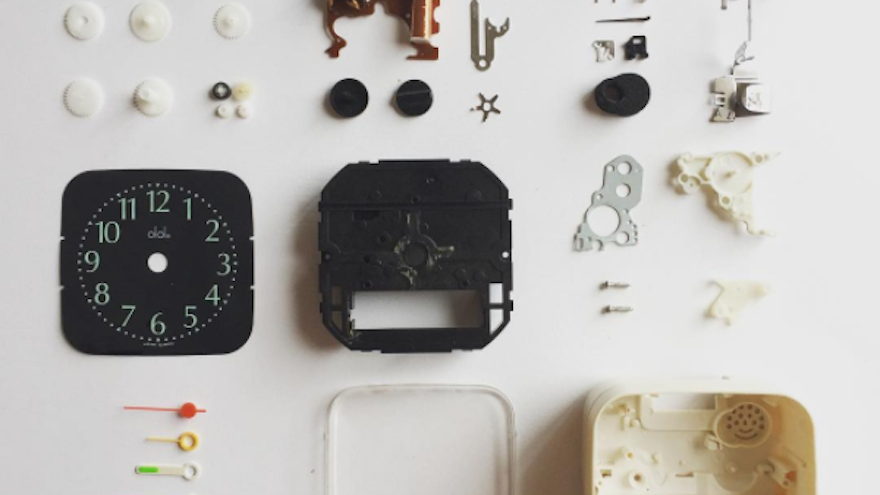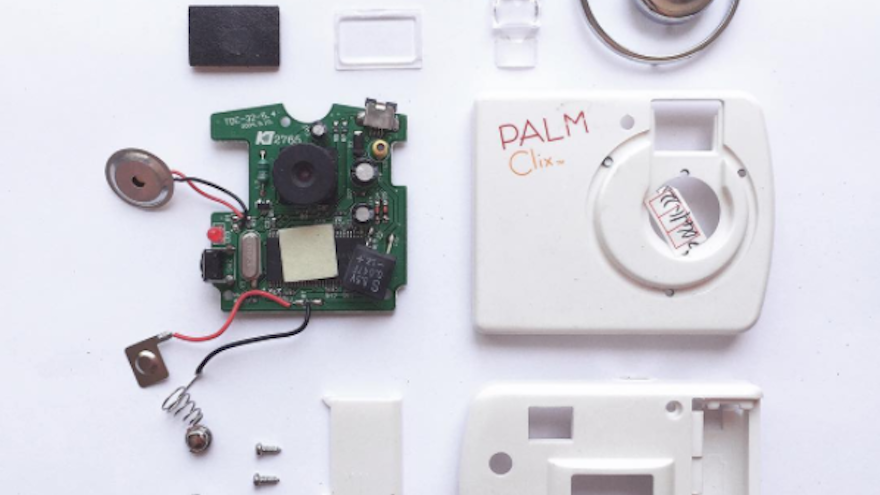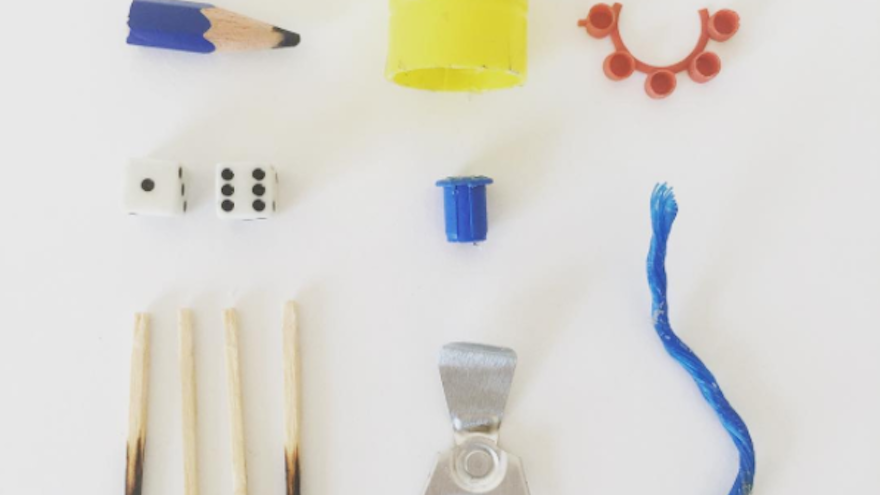Dina Amin is a Cairo-based product designer. About a year ago she started a project called Tinker Friday, where she picks a random object, disassembles it, examines it and makes a short stop motion film. Since starting Tinker Friday, she’s been asked to do stop-motion shorts for companies all around the world.
“I currently do stop-motion commissions, which is something I never imagined I’d be doing,” says Amin. “I wish that every year I’d find myself doing something I never imagined I’d be talented in.”
Most of the products she features are broken old bits of junk, but they make a pertinent point about the rate at which we consume things and the our lack of understanding what even makes up the objects we use and toss away.
“We forget the amount of work that was put into bringing even the tiniest pieces of things! We rarely see what's inside each product thus treat it as one whole part; not as a plastic cover, with buttons, vibrator motor, mic and so on.”
Amin’s investigations into the things around us comes from a childlike interest in the way things work.
“I think all kids are curious and creative, we just lose those when we grow up. The earliest memory I have of taking something apart was pulling the eyeballs of my doll out because I really wanted to know how they closed when I laid her down. My mum witnessed the massacre and needless to say that was also the last time she let me play with dolls!”
Although she took art as a subject at a young age in school, Amin admits that she didn’t really even understand what design was when she was at high school. As in many other cultures, in Egypt, professions like doctor and engineer are more highly regarded than artist or designer. Both of Amin’s parents are doctors.
“I am lucky to have parents who encouraged me to pursue whatever field I liked even though they don’t really understand what it is all about. I love story telling,” says Amin. “I love systems and figuring out how everything comes together, and systems can be found everywhere: systems in nature, in business, in products.”
The creative scene in Egypt is growing rapidly, with locally trained designers starting to tackle design challenges in the country and build business around their solutions. One example is Reform Studio, who use a recycled plastic bag material they invented called Plastex to make upcycled furniture.
“My work is a bit unusual or quirky to most Egyptians. So being able to communicate the messages behind my tinkering work to people in Egypt (even my own parents) is definitely a challenge. Most people don’t even know what stop motion is, although they have watched claymation cartoons growing up. They are not familiar with the terms used within the art and design world,” says Amin.
What's Inside My Cassette Tape? from dina Amin on Vimeo.
“Another major challenge that any creative person faces is being able to do their own creative projects and manage to find a way to be financially stable. Egypt is going through a major economic crisis right now, and that makes it 20 times harder to accomplish this than somewhere else.”
Amin hopes one day to make a feature length stop-motion film from waste materials, maybe even one that highlights the garbage problem in Egypt.










